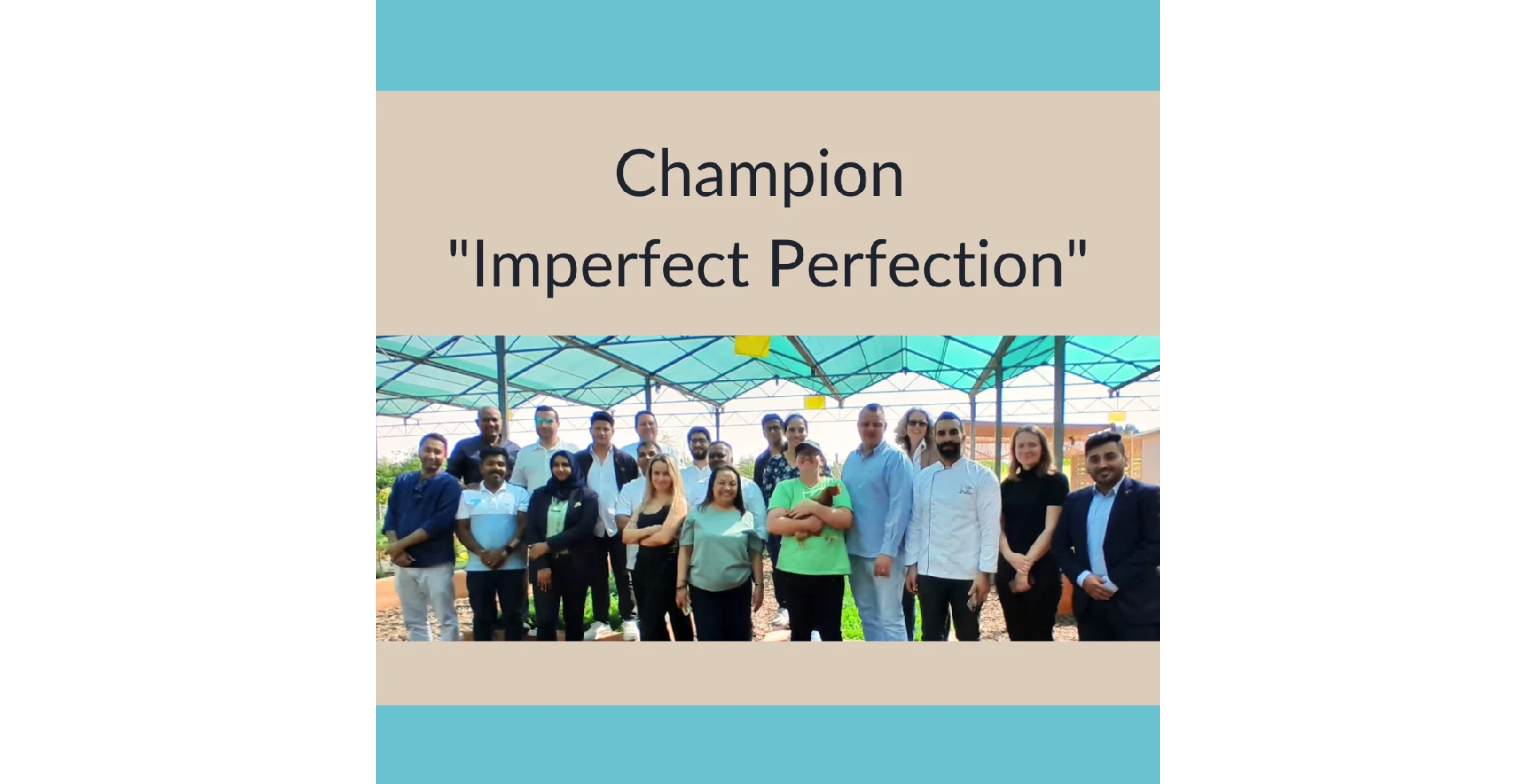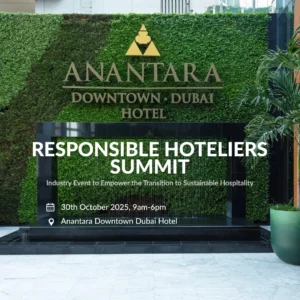Imperfect Perfection: A Call to Action By Emirates Bio Farm
Imagine a sprawling desert landscape, not of sand dunes but of vibrant green life.
This isn’t a mirage but the reality of Emirates Bio Farm (EBF), an organic oasis in the heart of the UAE. We at Sustainability Kiosk invited our community of hoteliers, purchasing departments, and the culinary maestros themselves – chefs – on a journey to this verdant sanctuary with a surprising mission:
"To confront the issue of Food Loss & Waste at its source"
(Food Loss: occurs in early stages, such as production and distribution, Food Waste: Occurs on a consumer level when edible food is discarded and disregarded.)
It’s a startling statistic: globally, 1.2 billion tons of food are wasted annually, and a significant chunk of that happens even before it leaves the farm. Cosmetic imperfections, fluctuating market demands, and logistical challenges lead to perfectly edible produce being deemed “unmarketable” and discarded.
At Emirates Bio Farm, this translates to a staggering 1000 kgs of daily food loss.
What if these “odd-shaped” vegetables, instead of ending up in landfills, could grace our plates? That’s the question we posed to our event attendees.
The farm tour wasn’t just about sightseeing; it was a call to action. We wanted chefs to see firsthand the bounty nature offers, to understand the sweat and toil poured into every carrot and every zucchini.
The afternoon unfolded as Chefs, with their boundless creativity, were challenged to weave these “discarded” vegetables into their menus. This isn’t just about aesthetics. Food waste has ethical, environmental, and economic consequences.
Every discarded carrot represents water squandered, land misused, and resources wasted. It translates to increased greenhouse gas emissions and a widening gap between food production and hunger.
So, what can the hotel industry do?
- Embrace the imperfect: Challenge unrealistic cosmetic standards and source produce based on quality, not appearance.
- Get creative: Chefs, you are the alchemists who can transform the “misfits” into culinary masterpieces. Work with farmers to understand their challenges and find creative uses for “waste” produce.
- Prioritize local and seasonal: Building relationships with local farms not only reduces food miles but also fosters a deeper understanding of the source of your ingredients.
- Compost and recycle: Food waste doesn’t have to be waste at all. Implement composting programs to turn scraps into nutrient-rich soil for future harvests.
Our visit to Emirates Bio Farm was a stark reminder that the fight against food loss & waste starts at the very beginning of the food chain. It’s a call to arms for the hotel industry – from procurement teams to chefs – to be more responsible, more creative, and more mindful of the food that graces our plates. Let’s not judge a carrot by its curve, but celebrate its journey from farm to fork, in all its glorious imperfection. Remember, sometimes, the most beautiful dishes are born from the most unexpected shapes.
On a larger scope, there is huge scope for regenerative agriculture and we are inspired by the Emirates Bio farm visit to witness the organic produce from 250,000 m2 of land (61 acres) and the potential it can offer. You can read on our farming experience in India from our write up here. Comparing the two experiences, we noticed there are stark differences between our experience in UAE vs. India. In India the concerns from the farmers is about water shortage for adequate growth whereas in UAE, the problem is food loss due to customer perception of a ‘Imperfect” vegetable; which can be addressed with our wallets and choosing wise.
Join the conversation! Share your thoughts on food loss and waste and how the hotel industry can make a difference.
To view more pictures of the event, click on link here.
Register with us, to join Sustainability Kiosk Community and receive your RSVP for future events.
To explore solutions and accelerate your journey in sustainability, look up “Shop” to learn and connect with solution providers for Food Waste Reduction.



